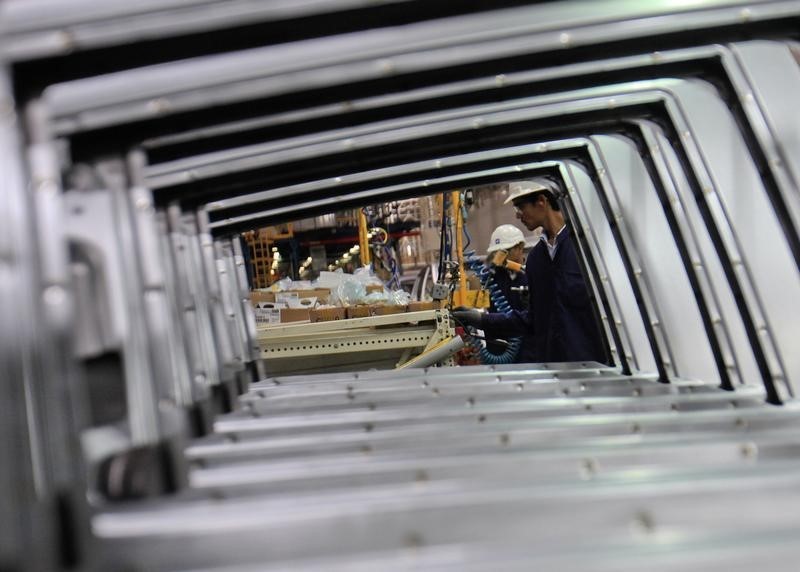By Michael Elkins
The U.S. Treasury unveiled Friday stricter electric vehicle tax rules that will reduce or cut tax credits on some zero-emission models but grants buyers another two weeks before the new requirements take effect.
The EV battery sourcing guidance issued Friday triggers new requirements for critical minerals and battery components and takes effect for vehicle purchases starting April 18.
The rules are aimed at weaning the United States off dependence on China for EV battery supply chains and part of President Joe Biden's effort to make 50% of U.S. new vehicle sales by 2030 EVs or plug-in hybrids.
The $430 billion Inflation Reduction Act (IRA) eliminated manufacturer EV sales caps but imposed new conditions on EV credits. They included a North American assembly requirement from August, price and buyer income eligibility caps from Jan. 1, and now the battery and critical minerals sourcing rules, effective April 18.
The IRA requires 50% of the value of battery components to be produced or assembled in North America to qualify for a $3,750 credit and 40% of the value of critical minerals sourced from the United States or a free trade partner also for a $3,750 credit.
Senior Biden administration officials were candid that the new requirements will make it more difficult in the “short-term” for consumers to take advantage of the new tax credits.
“The critical minerals and battery component requirements will reduce the number of electric vehicles currently eligible for the full credit in the short-term, in order to create incentives to bring supply chains and manufacturing to the U.S.,” a senior U.S. Treasury Department official told reporters. “However, we believe these requirements will significantly increase the number of vehicles made and sold in the U.S. over the next decade.”
"Some EVs will certainly qualify for a partial credit. Given the constraints of the legislation, Treasury's done as well as it could to produce rules that meet the statute and reflect the current market," said Alliance for Automotive Innovation CEO John Bozzella.
On Tuesday, the United States and Japan inked a trade deal on EV battery minerals. Treasury says newly negotiated critical minerals agreements can be considered free trade agreements. The guidance lists Japan as having a U.S. free trade deal.
The government will publish a revised list of qualifying models and tax credit amounts by April 18.
